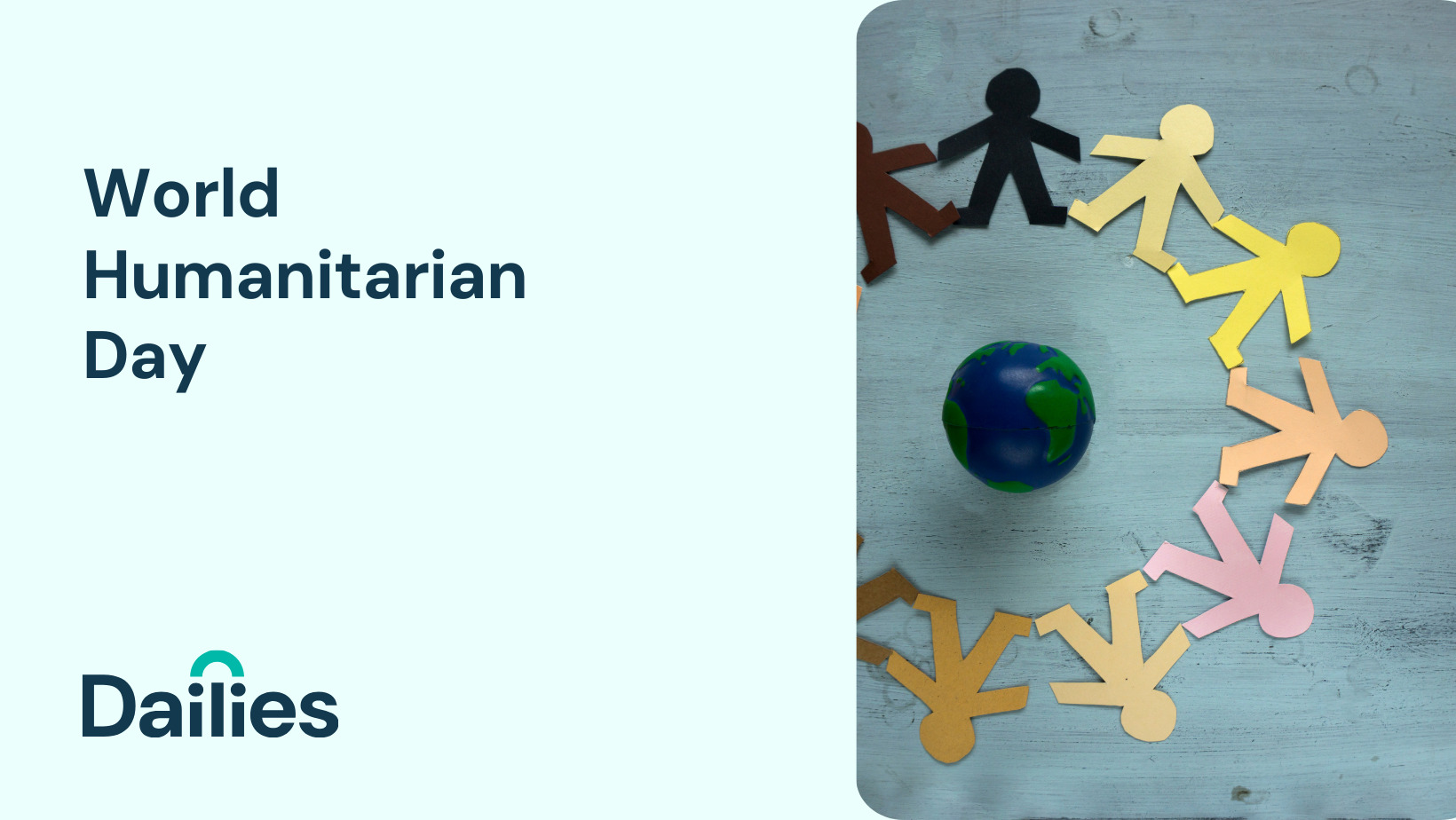Written by
Jillian Burger Read all posts by this author
Ideas for Treating Others Kindly
World Humanitarian Day: Inspiring the Next Generation Through Education
Every year on August 19th, the world comes together to recognize and celebrate World Humanitarian Day (WHD). This day is dedicated to honoring the spirit of humanitarian work, commemorating those who have lost their lives in the pursuit of helping others, and acknowledging the ongoing efforts of those who tirelessly work to alleviate suffering around the globe. An essential aspect of this day is educating the younger generation about the importance of humanitarian efforts and inspiring them to get involved.
The Origins of World Humanitarian Day
World Humanitarian Day was established by the United Nations General Assembly in 2008. The date marks the anniversary of the 2003 bombing of the UN headquarters in Baghdad, which resulted in the deaths of 22 humanitarian workers, including the UN’s High Commissioner for Human Rights, Sérgio Vieira de Mello. This tragic event underscored the risks faced by those working in conflict zones and the need for greater protection and recognition of humanitarian efforts.
Educating the Young: Why It Matters
Educating children about humanitarian work is crucial in fostering a culture of empathy, compassion, and global citizenship from an early age. Understanding the challenges faced by people in different parts of the world and learning about the efforts made to help them can inspire children to think beyond their immediate surroundings and develop a sense of responsibility towards others.
The Role of Schools and Educators
Parents, schools and educators play a vital role in imparting knowledge about humanitarian work. Here are a few ways they can incorporate the spirit of World Humanitarian Day into their curriculum:
Classroom Discussions: Teachers can initiate conversations about what it means to be a humanitarian. They can share stories of humanitarian workers and the impact of their work, helping students Understand the importance of empathy and kindness.
Interactive Activities: Activities such as role-playing, creating posters, and writing essays about humanitarian efforts can engage students creatively and help them internalize the values of compassion and altruism.
Guest Speakers: Inviting humanitarian workers or representatives from organizations to speak to students can provide firsthand insights into the challenges and rewards of humanitarian work. These interactions can be highly inspirational for young minds.
Educational Resources: Providing books, documentaries, and online resources about global humanitarian efforts can further students’ understanding and spark their interest in getting involved.
Involving Kids in Humanitarian Efforts
There are numerous ways children can get involved in humanitarian work, fostering a lifelong commitment to helping others:
Fundraising Projects: Schools can organize fundraising events where students can participate in activities like bake sales, charity runs, or art auctions. The funds raised can be donated to humanitarian organizations, teaching children the value of collective effort.
Community Service: Encouraging children to volunteer with other family members in local community service projects helps them understand the importance of contributing to their immediate environment. Activities like cleaning up parks, visiting nursing homes, or helping at food banks can make a big difference.
Awareness Campaigns: Students can use their creativity to run awareness campaigns about global issues, utilizing social media, school newsletters, and community events to spread their message.
Pen Pal Programs: Establishing pen pal relationships with children in different parts of the world can provide a personal connection to global humanitarian issues, fostering understanding and empathy.
The 2024 Theme: “No Matter What”
Each year, World Humanitarian Day focuses on a specific theme to highlight different aspects of humanitarian work. The theme for 2024 is “No Matter What,” emphasizing the unwavering commitment of humanitarian workers to provide aid and support under any circumstances. This theme resonates deeply in a world where crises are increasingly complex and interconnected, and where the need for humanitarian assistance is greater than ever.
Inspiring the Future
World Humanitarian Day is not just for those on the front lines; it’s a day for everyone, especially the younger generation, to get involved and show support. By educating children about humanitarian work and encouraging them to participate in various activities, we can inspire a new generation of compassionate and proactive global citizens.
As we celebrate this day, let us be inspired by the courage and dedication of humanitarian workers, and let us strive to nurture these values in our children, ensuring a brighter and more compassionate future for all.

